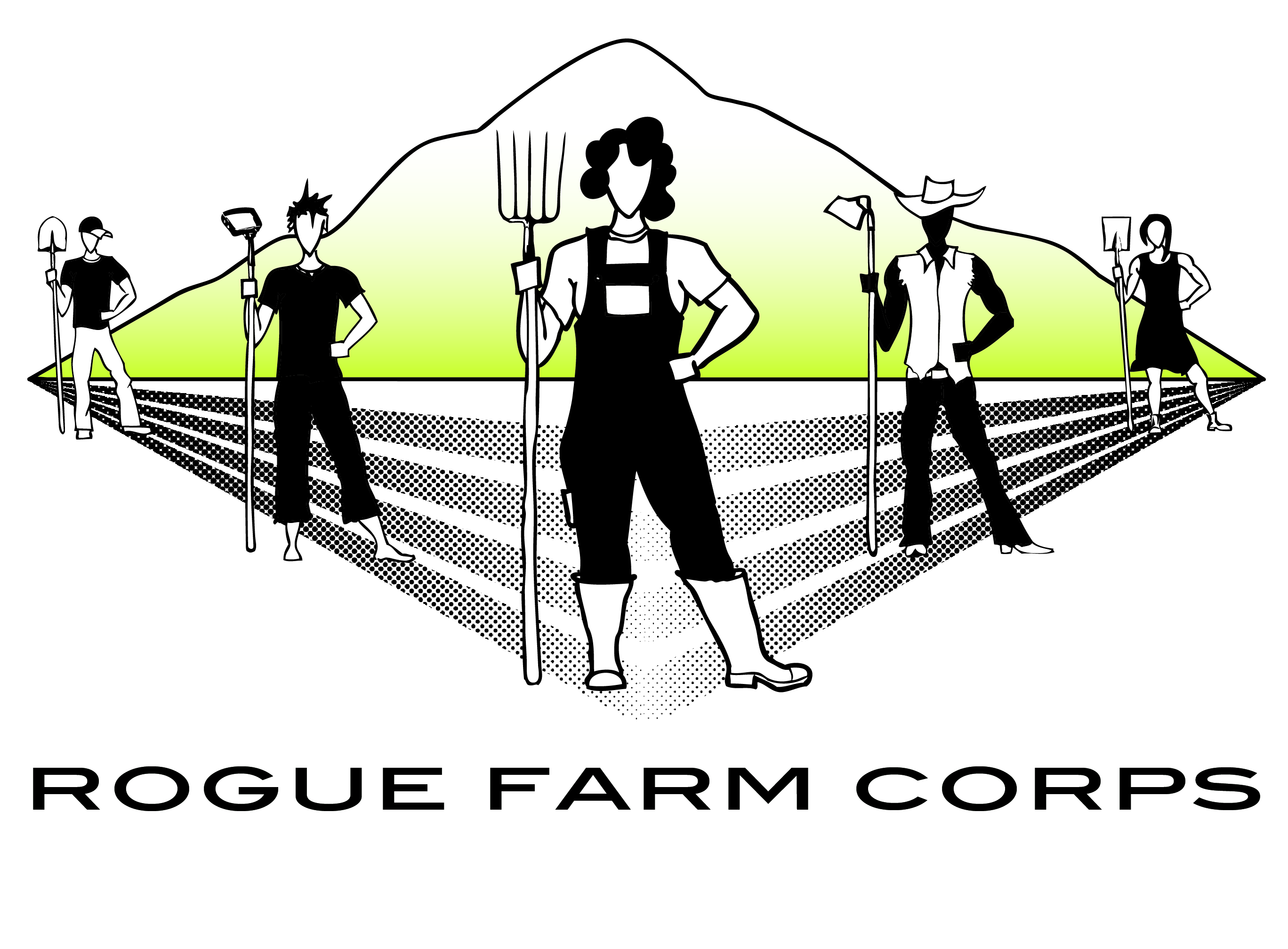Choose To Reuse
by Rianna Koppel, Co-op Sustainability Coordinator
At the Ashland Food Co-op, we are committed to becoming Zero Waste by 2030. Along the way, we’ve learned a lot about packaging and single-use at our store. Our owners care deeply about reducing plastic waste, and we do too!
Reusable Bags
At the co-op, we have many different bag options… So what's the best choice?
We offer plastic bags, paper bags, and reusable bags. There is a 2¢ charge for new plastic bags, and a 10¢ charge for new paper bags. These charges help to subsidize the costs of our reusable bags.
We offer two reusable options, both costing only 50¢! Our plastic bag is made from reused and recycled plastic. Our fabric bag is made from cotton by the company Royal Jute. 100% of the proceeds from Royal Jute go directly to Kiva, a nonprofit that finances micro-lending programs for women across the world. Every time you purchase or use one of these bags, it makes a real impact for the planet and people.
Since we introduced reusable bags in fall of 2018, we have sold over 16,000 of them to our awesome and very sustainable members. This has worked to reduce plastic too - we have ordered 100,000 less plastic produce bags than in 2018.
What About Compostable Bags?
Sometimes people ask, why don’t you use compostable bags like other grocery stores? This is a great question, with a complex answer.
There are many commercially compostable items out there - including our very own Co-op take-out containers. If you start reading the tiny font on various packaging, you will see that there are many packaged items that are compostable in industrial or commercial facilities.
Here’s the problem: we don’t have any industrial composting facilities in the state of Oregon that will take these kinds of materials.
In fact, every composting facility in Oregon came together to issue a statement on their refusal. They called it, “A Message From Composters Serving Oregon: Why We Don’t Want Compostable Packaging and Serviceware”. The company listed out nine reasons why it’s not a good idea, including the facts that these materials do not always break down, they introduce contaminants, and they cannot sell this compost to organic farmers.
You can read more about this statement in this NCRA article from March 2019.
What about straws made from avocado pits?
So what about bio-based products made from renewable materials like bamboo, corn, or avocado pits? No matter the material, it’s still a single-use straw. There is a financial impact as well - straws made from avocado pits costs a whopping 600% more than a single-use paper straw. I suggest trying a reusable stainless steel straw instead!
There’s another hidden cost to plastics made from materials like corn… the impact on the environment.
According to the Oregon Department of Environmental Quality’s study on Popular Packaging Attributes, bio-based disposables can actually have a worse environmental impact! They concluded that biobased packaging materials have significant environmental trade-offs when compared to non-bio based counterparts. Plus, they take away from food production.
What Can I Do?
Choose to reuse first. Make sure to throw your reusable produce bags in with your tote bags, and don’t forget your coffee cup! Eat in at the Co-op on a durable plate or bowl - which will save you 15¢.
There are different ways to address our plastic problems, and each one of them can start with us making the choice to reuse. We started our 15¢ discount for bringing your own coffee cup in 2013 - since then, customers have used this discount over 113,000 times! That’s an amazing diversion from the landfill that makes us proud to be committed towards zero-waste at the Co-op.
If you would like to learn more about our sustainability initiatives, contact Rianna at sustainability@ashlandfood.coop.
More Co-op News

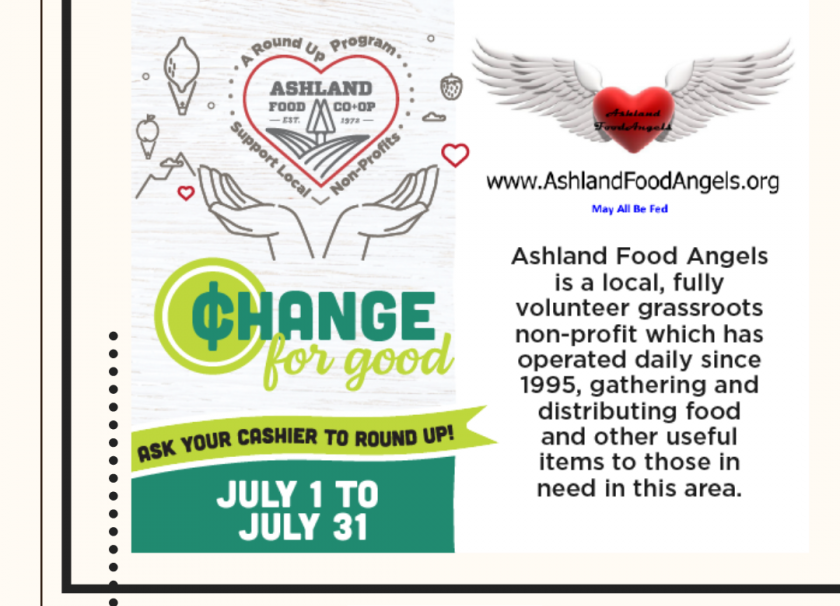
July Change for Good Partner: Ashland Food Angels
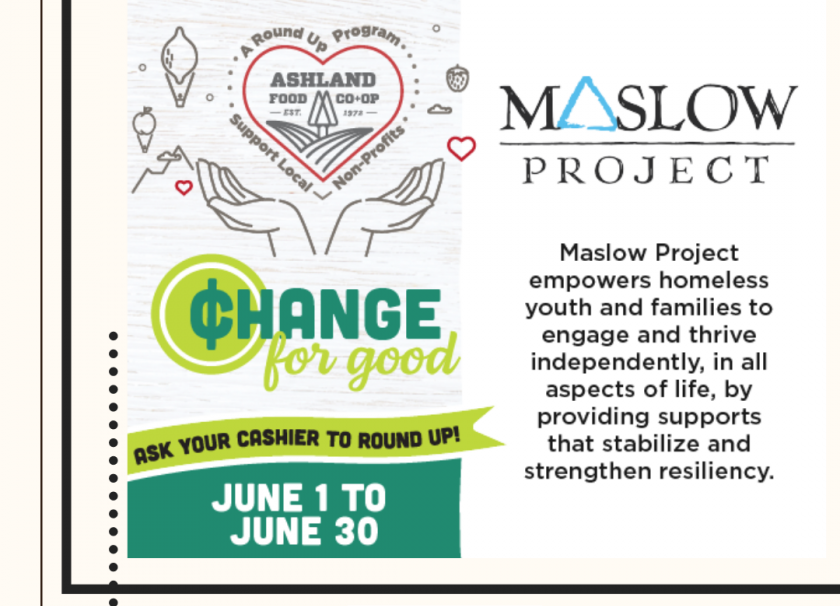
June Change for Good Partner: Maslow Project

Celebrate Ashland Food Co-op's 50th Anniversary
Ashland Food Co-op has been a staple in our community for 50 years and invites you to celebrate this anniversary with them on June 3rd, 2022 from 5:00 PM-8:00 PM, at the AFC employee parking lot for dancing, food, face painting and more!
Music by Eight Dollar Mountain and Wild and Blue.
Siano's Karibbean Cookhouse, Walkabout Brewing Co. and Rogue Kombucha will be joining us with delicious food and beverages available for purchase.
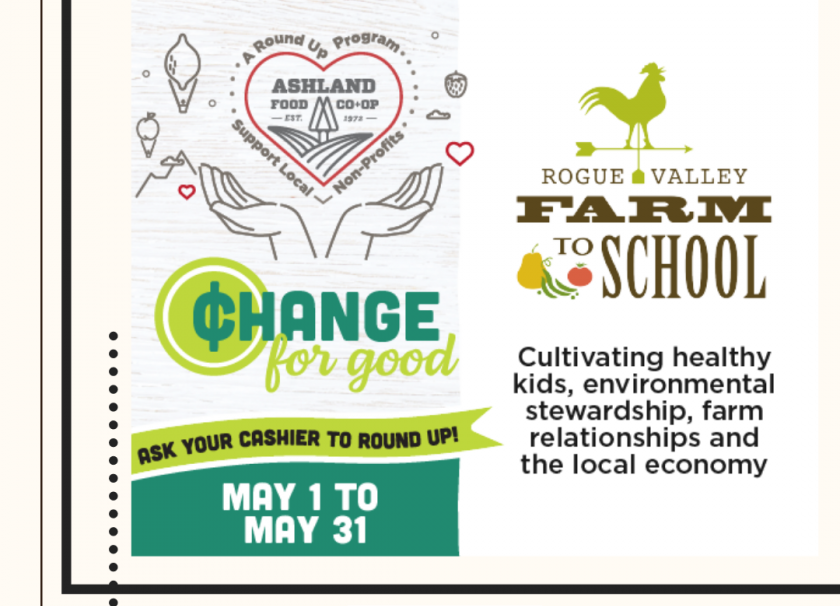
May Change for Good Recipient: Rogue Valley Farm to School
Open House Hiring Event
The Ashland Food Co-op is excited to provide employees with a fun, professional workplace with potential for growth and advancement. We see every day as an opportunity to better our community, our planet, and ourselves! Eligible employees will receive a 15% employee discount on all store purchases, affordable healthcare, 3.5 weeks of paid time off in your first year for vacation and sick days, matching 401K plan after 1 year, productivity and profit sharing bonus opportunities, free organic produce every day... and so much more!

Standing with Democracy
Our Community Food Co-op has joined, along with other co-ops across the nation, to donate to a Disaster Recovery Fund organized by National Co+op Grocers (NCG) Cooperation, Cooperative Development Foundation (CDF) and National Co-op Business Association of the United States (NCBA CLUSA) to Co-op Ukraine to support cooperatives impacted by the war in Ukraine.


Thank you for 50 years.
Celebrate our anniversary with us!
June 3rd, 2022 at the Ashland Food Co-op:
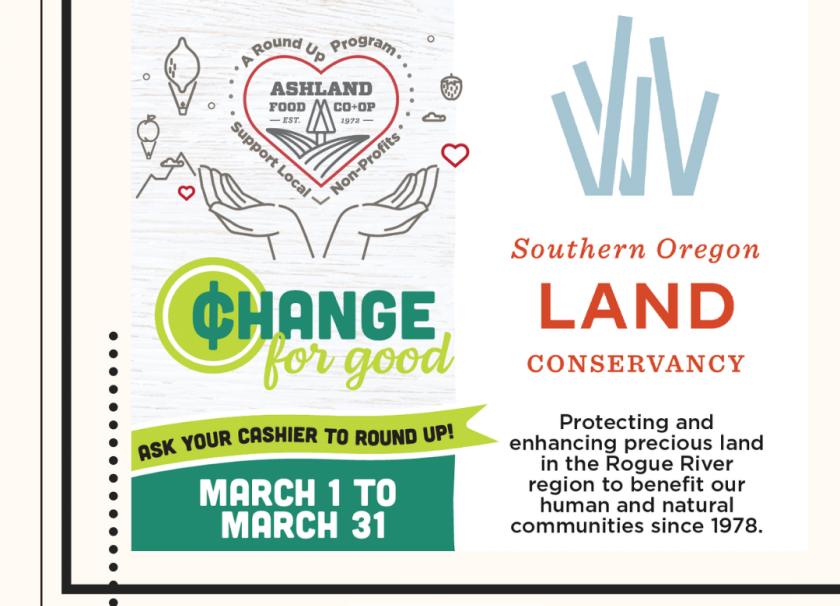
March Change for Good Partner: Southern Oregon Land Conservancy
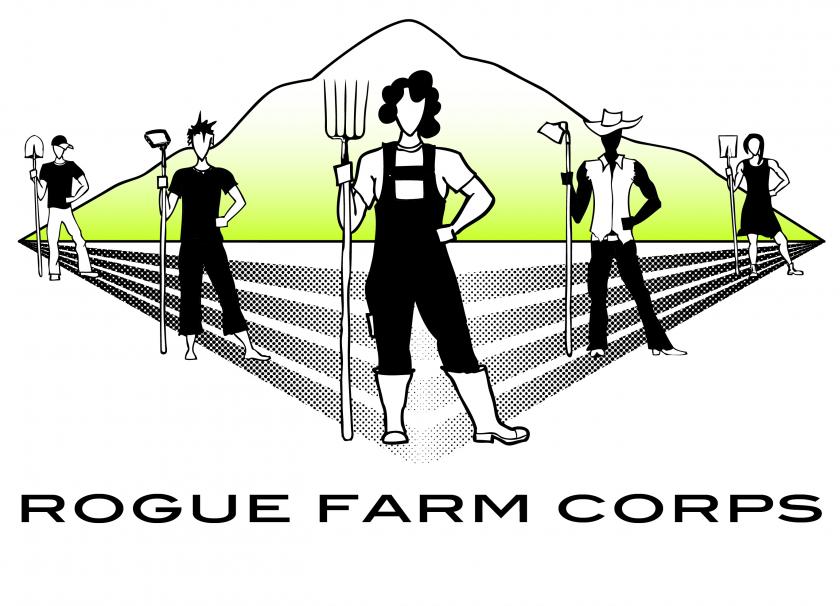
February Change for Good Partner: Rogue Farm Corps
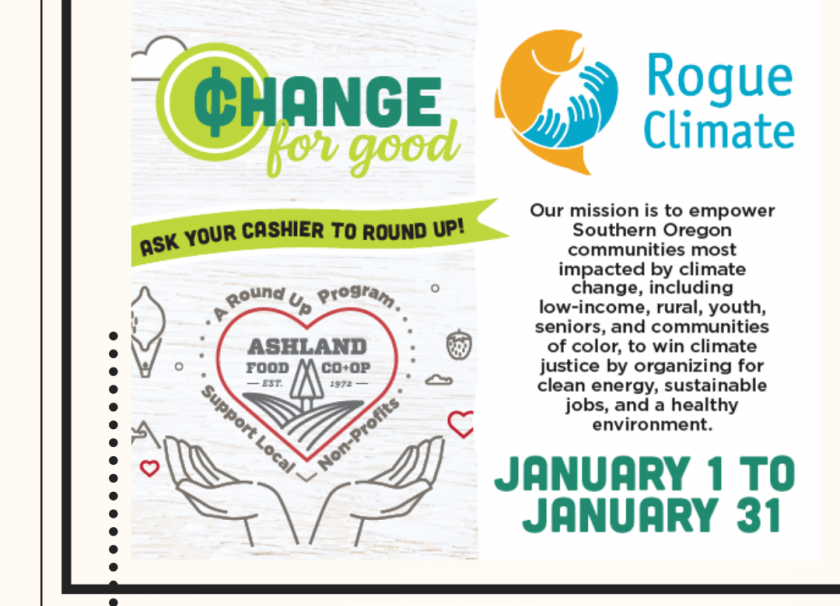
January Change for Good Partner: Rogue Climate
January's Change for Good Partner is
local nonprofit Rogue Climate
Rogue Climate was founded in 2013 in the Rogue Valley of Southern Oregon.
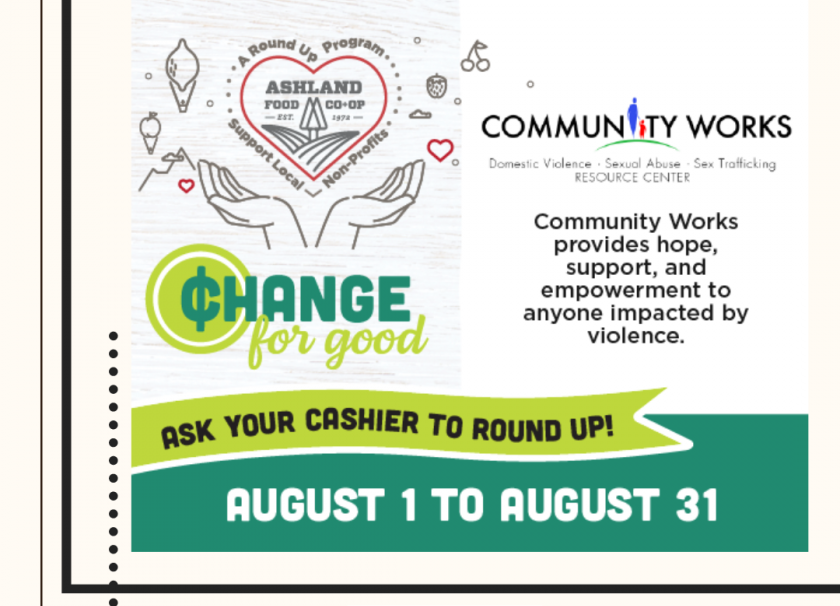
August Change for Good Partner: Community Works
August's Change for Good Partner is



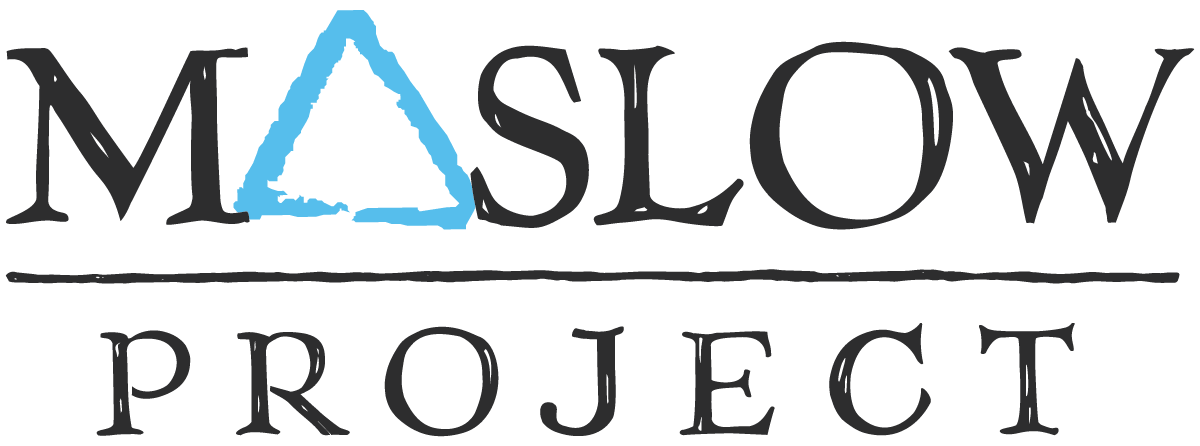
.png)
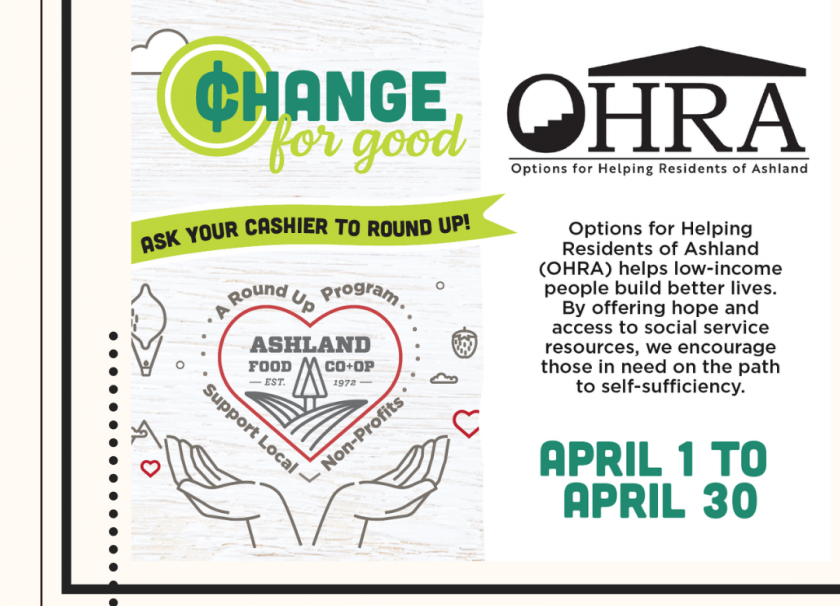
.jpg)

